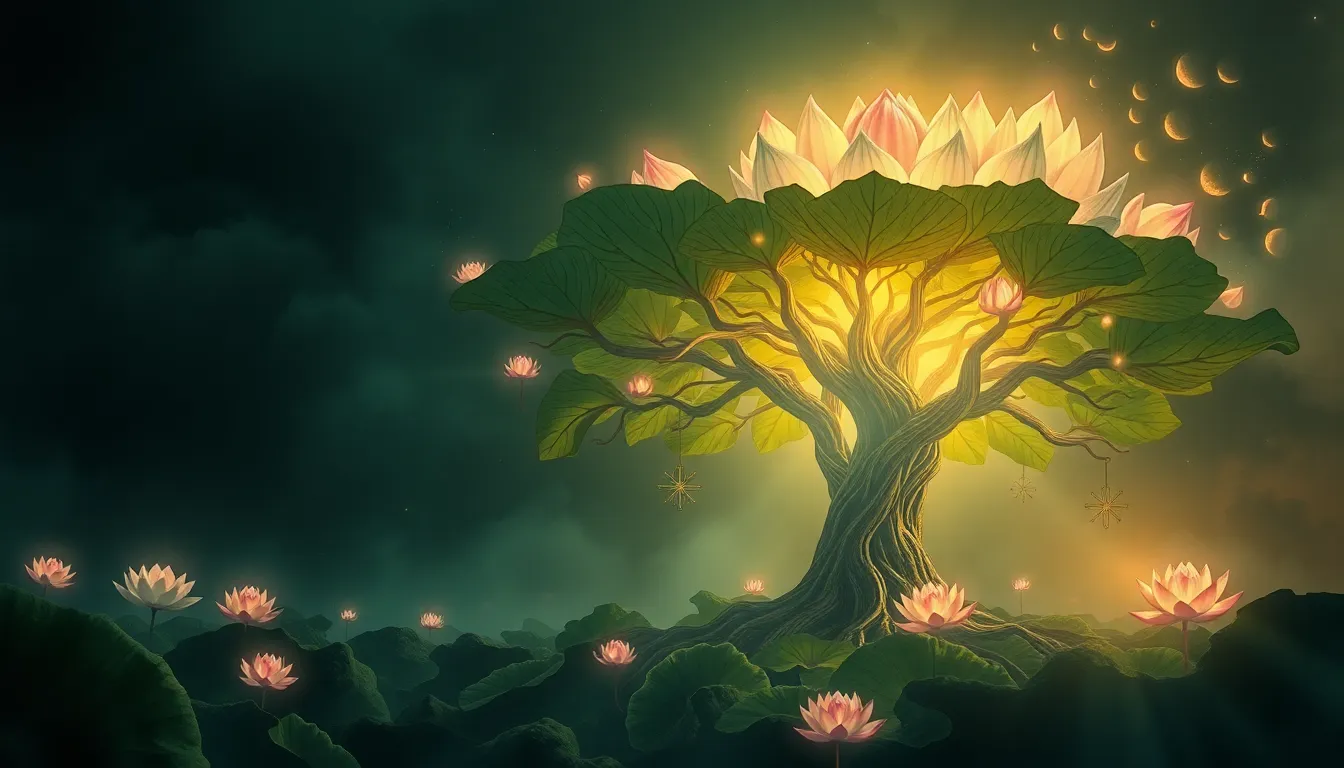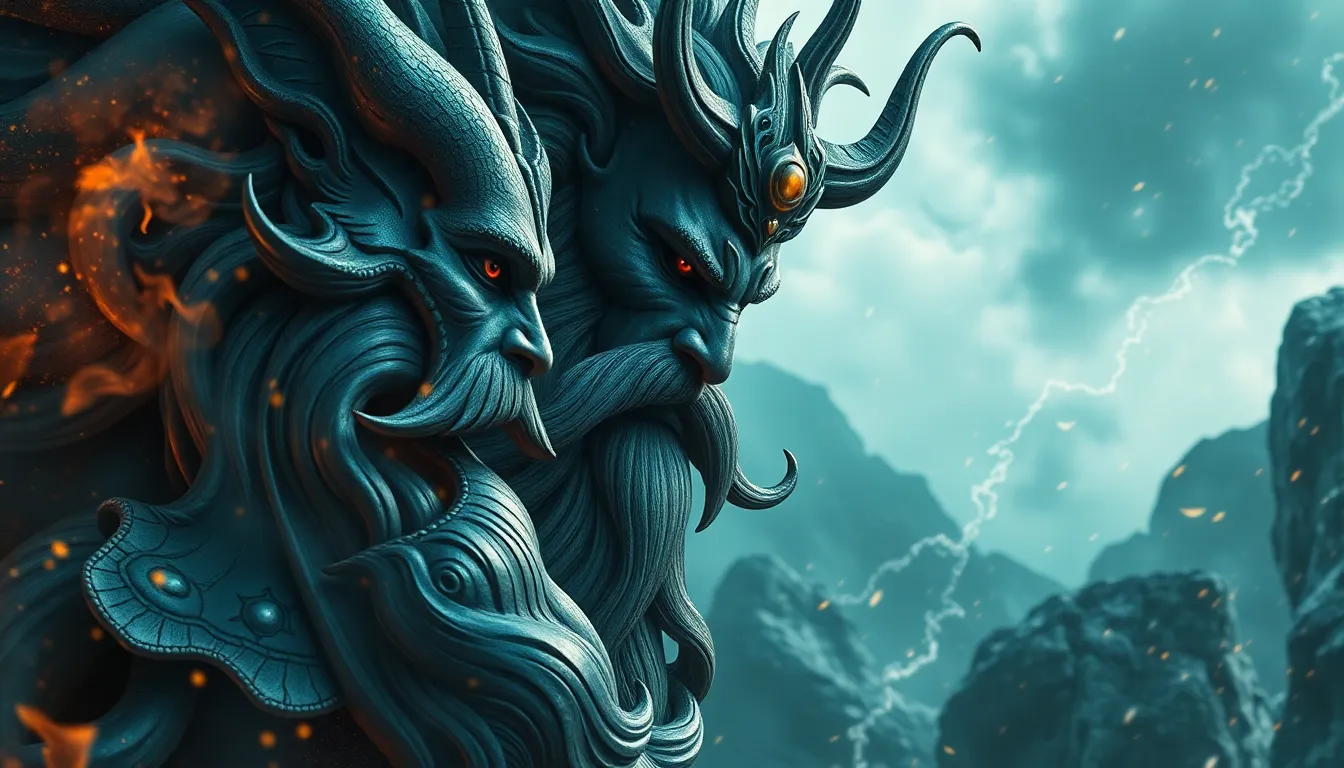The Great Awakening: Creation Myths That Inspire Change
I. Introduction
The term “Great Awakening” refers to several periods of religious revival in American history, primarily characterized by a surge in Protestant evangelicalism. This phenomenon not only reshaped religious landscapes but also sparked social movements that sought to address various injustices.
Creation myths, on the other hand, are foundational stories that explain how the world and humanity came into existence. They serve as cultural cornerstones, providing people with a shared identity and understanding of their place in the universe.
The intersection of these two concepts—Great Awakening and creation myths—reveals the profound impact of storytelling in inspiring change. By examining the narratives that have emerged through these awakenings, we can uncover the ways in which they motivate individuals and communities to strive for a better world.
II. Historical Context of the Great Awakening
A. Overview of the First Great Awakening (1730s-1740s)
The First Great Awakening marked a pivotal moment in American religious history, emphasizing personal faith over institutional religion. Key figures such as Jonathan Edwards and George Whitefield played significant roles in this movement.
- Jonathan Edwards: Known for his fire-and-brimstone sermons, Edwards emphasized the need for personal salvation and a direct relationship with God.
- George Whitefield: A charismatic preacher whose itinerant ministry drew large crowds, he helped spread the revivalist spirit across the colonies.
The impact of the First Great Awakening on religious thought was profound, leading to the establishment of new denominations and a more democratic approach to faith.
B. Overview of the Second Great Awakening (early 19th century)
The Second Great Awakening expanded the revivalist movement and had a significant influence on various social reform movements, including abolitionism and women’s rights. Key figures during this period included Charles Finney and Lyman Beecher.
- Charles Finney: A leading revivalist who advocated for social reform, Finney emphasized moral responsibility and the possibility of perfection in this life.
- Lyman Beecher: A prominent preacher and social reformer who fought against alcohol consumption and supported women’s rights.
This awakening fueled a spirit of reform that not only sought spiritual renewal but also aimed at societal transformation.
III. Understanding Creation Myths
A. Definition and significance of creation myths
Creation myths are traditional stories that explain the origin of the world, humanity, and the cosmos. They often encapsulate the values, beliefs, and cultural identity of the people who tell them.
B. Common themes in creation myths across cultures
Despite the diversity of cultural backgrounds, many creation myths share common themes:
- Chaos to Order: Many myths depict a transition from chaos to a structured universe.
- Divine Intervention: Creation often involves gods or supernatural beings shaping the world.
- Humanity’s Purpose: Myths frequently address the purpose of human existence and the relationship between humans and the divine.
C. Role of creation myths in shaping identity and culture
Creation myths play a crucial role in forming individual and collective identities. They provide frameworks through which communities understand their history, values, and the natural world.
IV. Key Creation Myths from Various Cultures
A. Indigenous creation stories and their connection to the land
Many Indigenous cultures have creation stories that emphasize the interconnectedness of people and the land. These narratives often highlight respect for nature and the importance of stewardship.
B. African creation myths and themes of community and resilience
African creation myths frequently emphasize communal values and resilience in the face of adversity. These stories often reflect the deep connection between people and their environment.
C. Eastern philosophies and their views on beginnings and change
Eastern philosophies, such as Hinduism and Buddhism, offer creation narratives that focus on cycles of rebirth and the impermanence of existence, fostering a deep understanding of change.
D. Western creation narratives and their impact on modern thought
Western creation narratives, particularly those found in Judeo-Christian traditions, have significantly influenced modern thought, shaping concepts of progress, linear history, and individual destiny.
V. The Psychological Impact of Creation Myths
A. How creation myths foster hope and resilience
Creation myths can instill hope and resilience by providing narratives that frame struggles as part of a larger journey toward improvement and renewal.
B. The role of storytelling in societal transformation
Storytelling serves as a powerful tool for societal transformation, allowing communities to articulate their values and aspirations while fostering solidarity and collective action.
C. Connection between myth and personal identity
Individuals often draw on creation myths to shape their personal identities and navigate challenges, finding meaning in the stories of their cultural heritage.
VI. The Great Awakening and Modern Movements
A. The legacy of the Great Awakening in contemporary social movements
The Great Awakening has left a lasting legacy in contemporary social movements, inspiring individuals to engage in activism and reform based on spiritual and moral imperatives.
B. Case studies of modern movements inspired by historical creation myths
Several modern movements can trace their roots back to the ideals fostered during the Great Awakening:
- Abolition Movement: Many abolitionists drew upon religious convictions that echoed the revivalist spirit.
- Environmental Movement: Activists often invoke creation myths that emphasize stewardship of the Earth.
C. Intersection of spirituality and activism in the Great Awakening context
The Great Awakening serves as a poignant example of how spirituality can intersect with activism, motivating individuals to pursue justice and reform.
VII. Creation Myths as Catalysts for Change
A. Analysis of how specific myths have led to social change
Specific creation myths have been catalysts for social change by providing frameworks that inspire collective action and highlight injustices.
B. Examples of myths that have inspired environmental activism
Creation stories that emphasize the sacredness of nature have fueled environmental movements, encouraging people to protect the Earth.
C. Creation myths as frameworks for understanding and addressing injustice
By framing injustices within the context of creation myths, activists can articulate their struggles in ways that resonate deeply with communities, fostering a shared sense of purpose.
VIII. The Role of Art and Literature in Shaping Creation Myths
A. Exploration of artistic representations of creation myths
Art has long been a medium for expressing and interpreting creation myths, allowing cultures to convey complex ideas about existence and identity.
B. Literature that has reinterpreted or revitalized creation myths
Many contemporary authors have revisited creation myths, reinterpreting them to address modern issues and resonate with new audiences.
C. The influence of modern media on the perception of creation myths
Modern media, including film and digital storytelling, has transformed the way creation myths are perceived, making them accessible to broader audiences and facilitating cultural exchange.
IX. Challenges and Critiques of Creation Myths
A. Critical perspectives on the use of creation myths in modern movements
While creation myths can inspire change, there are critiques regarding their use in modern movements, particularly concerning authenticity and cultural appropriation.
B. The potential for misinterpretation or appropriation of
Misinterpretation or appropriation of creation myths can lead to misunderstandings and dilute their original significance, posing ethical challenges for activists and storytellers alike.



